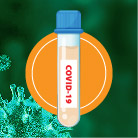≡

Too young for this: Facing Colorectal Cancer at a much younger age

Dr Clara Wu
| Director, Emergency Medicine Centre, and Consultant in Emergency Medicine |
Seasonal Illness
Flu and Cold
‘Temperature drops to 9℃’,‘Flu increases as cold breeze comes,’ are the typical news headlines recently. Temperatures in Hong Kong these days have been fluctuating by a large extent, with one day as high as 21℃, while another day as low as below 10℃. Such unpredictable weather makes people get flu easily.
Meanwhile, for the past few months, avian influenza has broken out in mainland China, and there were a number of cases transmitted to Hong Kong, in which some patients died. Under these circumstances, there are more people getting symptoms of cold, fever and respiratory infections, and many people in Hong Kong are afraid of infecting influenza.
Difference between flu and cold
However, there are differences in symptoms of influenza and common cold. Influenza is caused by viruses, patients infected would have high fever in a short time, and they would also have headache and muscle pain and feel tired; and only after a few days they would have a running nose, sore throat and coughing. While common cold is mainly caused by rhinoviruses, patients would first have a running nose, sore throat and coughing, and they may not get a fever. Even if they get a fever, it would just be a low fever. Except for symptoms, there are differences in symptom appearance periods between flu and common cold. Common cold is an all-year-round disease, while flu pandemic is a seasonal disease, with its peak period starting from November to February. This is because people like to stay indoors in cold weather, which affects air ventilation and makes cross infections of bacteria easier. People with low immunity would be most vulnerable to flu.
Infectious in first 10 days
Flu is infectious in the first 10 days of symptom appearance, and there are 4 days of incubation for those infected. Those infected should take a rest at home, and they can get back to work with a mask after the fever disappears. There are 3 types of flu, and the most common types in Hong Kong are Type A and B. The complications of flu are serious, which can lead to pneumonia.
Get a vaccine to prevent flu
To prevent flu and cold, the most important thing is to strengthen your immunity. Only strong bodies would be protected against virus attacks. On the other hand, getting a flu vaccine is also a good way to fight against flu. However, flu vaccines only have 80% protection, which cannot provide 100% protection against flu symptoms. To conclude, prevention is better than cure, start preventing flu by becoming physically strong and getting a flu vaccine now.








